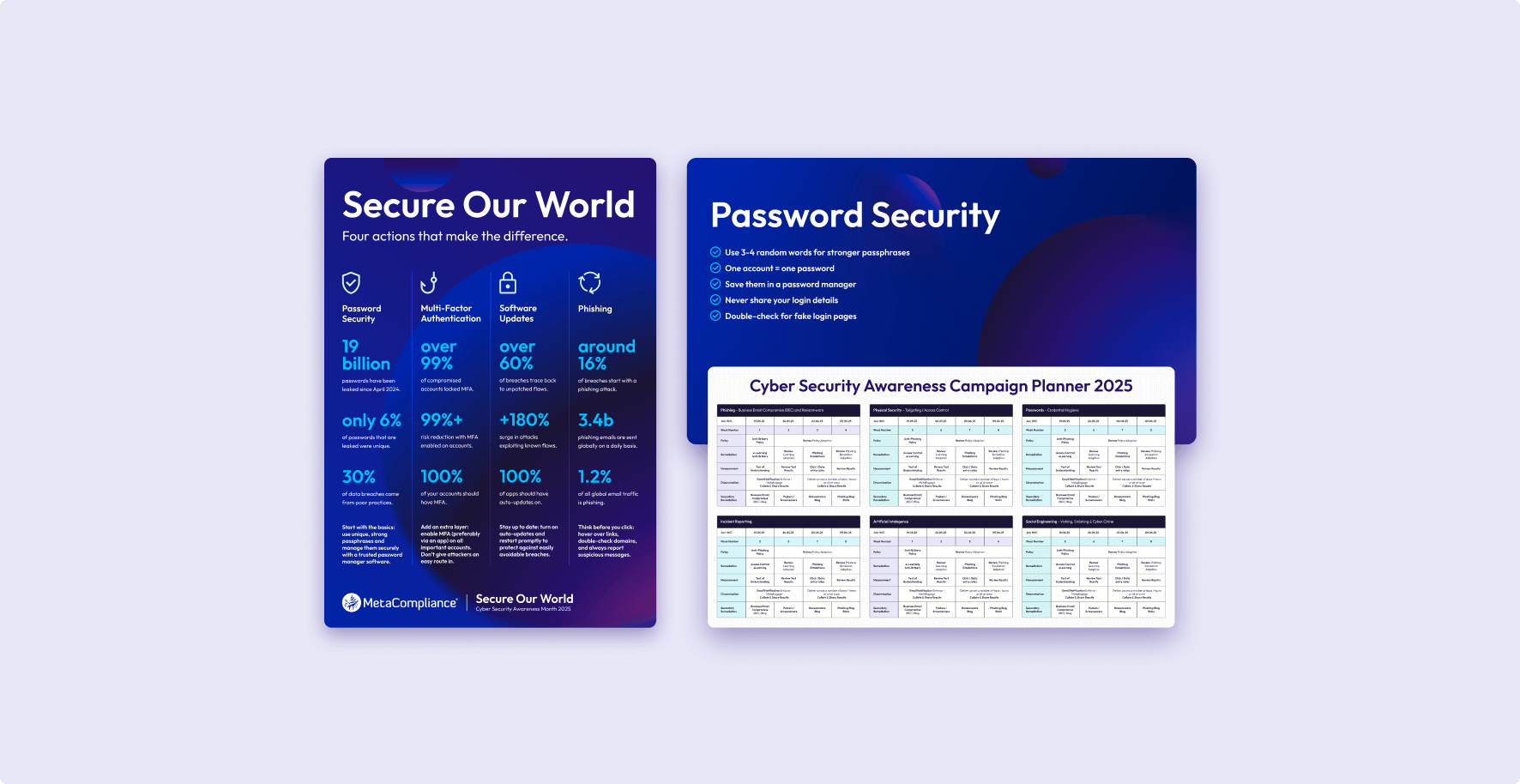Insights & Resources
Discover expert insights, real-world results, and ready-to-use resources that make it easier to protect people, safeguard data and stay compliant.
Handing Your Passport to a Stranger: The Obvious Gap in Autonomous AI 
Cyber Security Awareness
Handing Your Passport to a Stranger: The Obvious Gap in Autonomous AI
Read more
NIS2 Compliance Won’t Fail On Technology. It Will Fail On People. 
Governance, Risk, Compliance GRC
NIS2 Compliance Won’t Fail On Technology. It Will Fail On People.
Read more
Your Next Step in Cyber Security Awareness
Resources are just the beginning. Partner with MetaCompliance to deliver personalised training that drives compliance, changes behaviour, and reduces risk.







